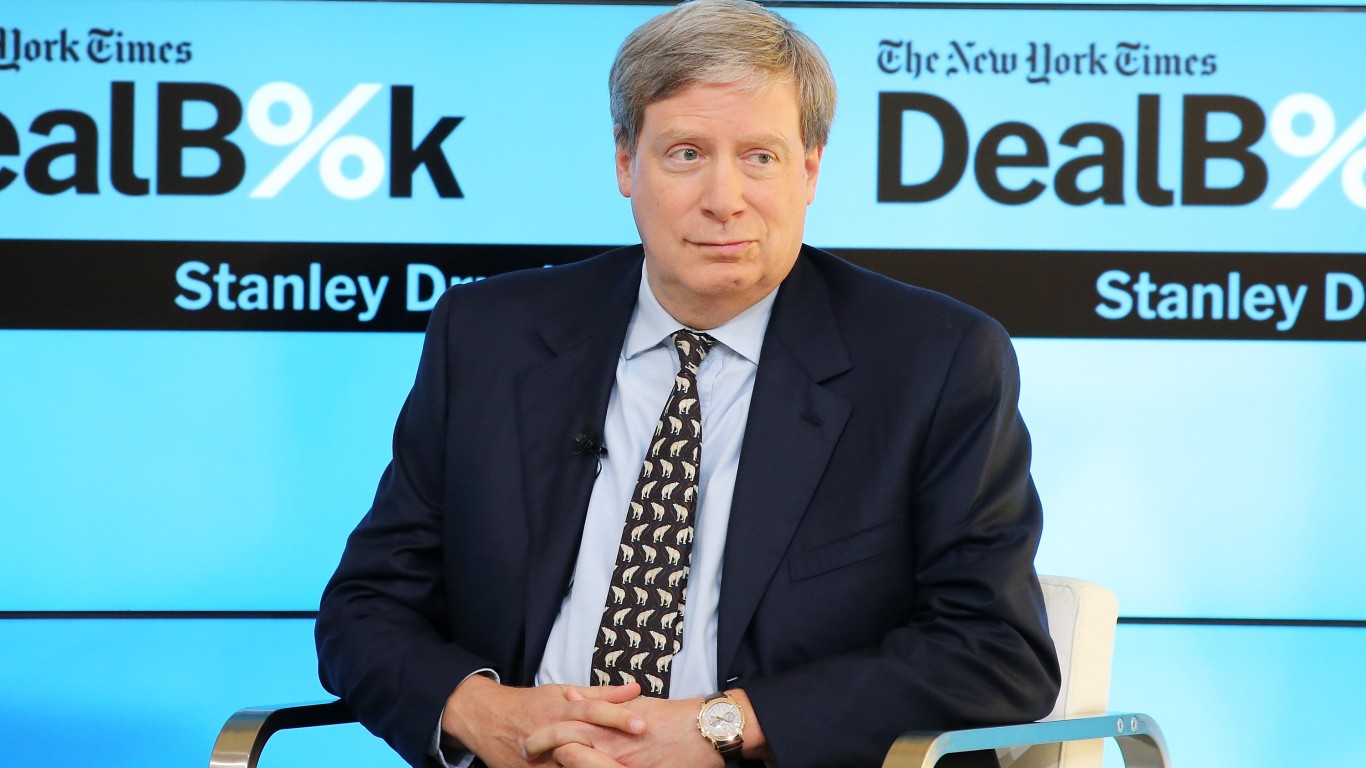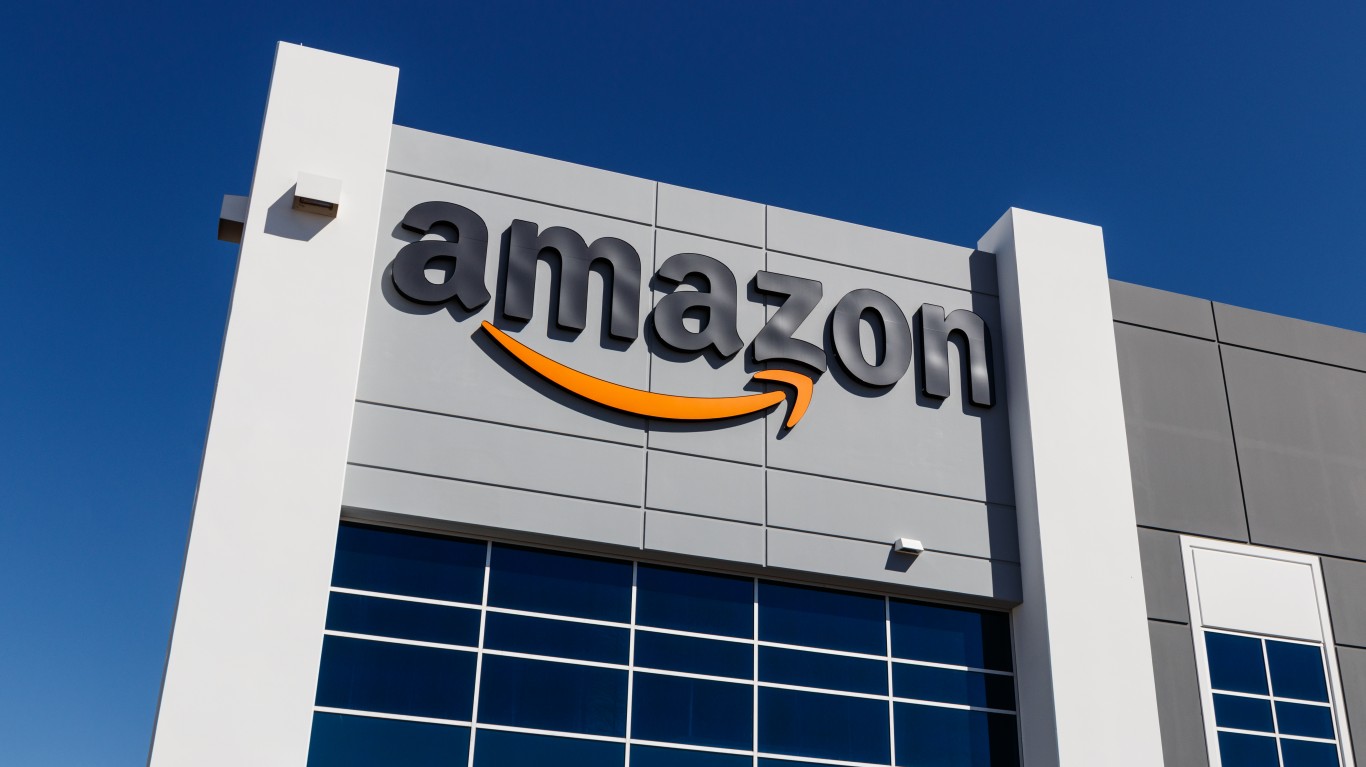 It’s that time of year again, when proxies are released and many business publications run lists of the highest paid CEOs at America’s large public companies. The compensation figures are extraordinarily high, sometimes ranging into the tens of millions of dollars. At 24/7 Wall St., we wanted to see whether those CEOs are worth what they were paid. We looked at the compensation of CEOs at the 100 public companies that paid their chief executives the most during calendar 2010. Based on how well the companies they run performed for shareholders, several CEOs are clearly not worth their pay.
It’s that time of year again, when proxies are released and many business publications run lists of the highest paid CEOs at America’s large public companies. The compensation figures are extraordinarily high, sometimes ranging into the tens of millions of dollars. At 24/7 Wall St., we wanted to see whether those CEOs are worth what they were paid. We looked at the compensation of CEOs at the 100 public companies that paid their chief executives the most during calendar 2010. Based on how well the companies they run performed for shareholders, several CEOs are clearly not worth their pay.
Read America’s Most Overpaid CEOs
24/7 Wall St. obtained the list of companies with the 100 highest paid CEOs from GMI, an independent governance ratings firm. The CEOs’ total compensation includes base salary, perks, cash bonuses, equity awards and any increase in pensions and other retirement benefits. We then looked at the stock performance of these companies during 2010. We got the stock performance data from Capital IQ. Our list is comprised of those companies whose CEOs were among the highest paid during 2010, yet their stocks performed the worst and had the largest price drops that same year. We excluded chief executives who are no longer with their company, like Mark Hurd of Hewlett-Packard (NYSE: HPQ), who might have otherwise made the list.
Once again, this list makes it clear that shareholders who cannot effectively vote to have management removed are saddled not only with those ineffectual executives, but also with their pay packages. The notion of “pay for performance” is still not applied systematically among America’s largest public companies. There is no sign that the SEC or any other regulator is likely to change the method by which CEOs at public companies are compensated, so next year, there will be another 24/7 Wall St. Most Overpaid CEOs.
8. Kevin Sharer
> Company: Amgen Inc.
> Total compensation: $21,138,133
> Change in stock price: -3.0%
Sales at the world’s largest biotech company rose from $14.6 billion in 2009 to $15.1 billion in 2010. Net income was higher by 2% to $4.6 billion. Amgen (NASDAQ: AMGN) has relied heavily on its anemia drugs, which have experience eroding sales over the past two years. The firm’s flagship drugs, Epogen and Aranesp, fall into this red blood cell booster category. Largely because of worry over the future of these products, the stock has been flat for three years. Amgen’s margins also likely will be hurt by the introduction of generic versions of some of its drugs. Sharer made an extraordinary $26 million over the two years that ended in 2010. During that time Amgen’s shares were flat compared to a 65% increase in the Nasdaq.
Also Read: The Most Innovative Cities in America
7. William Weldon
> Company: Johnson & Johnson
> Total compensation: $28,720,491
> Change in stock price: -4.0%
Johnson & Johnson (NYSE: JNJ) has been battered by product recalls that have hurt the company’s sales and tarnished its brand — one that was once among the most valuable in the world. In a period that ended last April, J&J had 22 product recalls in 19 months. Among the products recalled were widely sold Motrin and Children’s Tylenol. Last year’s damage has already spilled into this year’s results. In January, J&J had forecast 2011 earnings per share of about $4.85, well below analysts’ expectations of $4.99 a share for 2011. Weldon has spent a great deal of his time handling the recall scandal. He was grilled by a congressional committee last September and exchanged barbs with Food and Drug Administration officials over the recalls.
6. Robert Stevens
> Company: Lockheed Martin Corporation
> Total compensation: $21,897,820
> Change in stock price: -7.2%
The drop in Lockheed Martin’s (NYSE: LMT) share price did not just occur over the course of 2010. Its stock has underperformed the DJIA over the past five years as well. While revenue in 2010 was up to $45.8 billion from $44 billion the year before, net income fell to $2.9 billion — lower than any of the previous three years. The anticipation of federal defense budget cuts may have hurt Lockheed’s share price. But Wall St. expects sales overseas to be strong for the next several years. The blame for delays and test problems with Lockheed’s huge F-35 program do belong with Stevens. And while Stevens still has a job, in June the company said it would cut 6,500 workers. Stevens did not even take a pay cut.
Also Read: Why Doesn’t Yahoo! Sell Its Own Asian Assets?
5. William Swanson
> Company: Raytheon Co.
> Total compensation: $18,787,343
> Change in stock price: -10.1%
Defense contractor Raytheon (NYSE: RTN) had net income of $1.8 billion in 2010 down from $1.9 billion the year before. Revenue was nearly flat at $25 billion. Raytheon shares have probably suffered because of concerns about the government’s defense budget. The firm’s pension liabilities are nearly $5 billion. Swanson’s compensation raises the question of whether a company in a troubled industry, even if relatively well run, should pay its CEO this much while shareholders do poorly. Swanson has made almost $58 million over the three years that ended in 2010. Based on how investors have done, that is excessive.
4. Miles White
> Company: Abbott Laboratories
> Total compensation: $25,564,283
> Change in stock price: -11.3%
Abbott Labs (NYSE: ABT) recently announced it would break itself into two companies. It was the best thing management has done for shareholders in years. Abbott has been criticized for its acquisition spree, and now it has decided to break the businesses it has acquired into parts. Abbott has also struggled with product development. The drug and medical device company has failed to develop any major pharmaceuticals out of its M&A operations in the past two years. Abbott’s revenue rose from $30.8 billion in 2009 to $35.2 billion in 2010, but net income fell from $5.7 billion to $4.6 billion.
Also Read: Holiday Sales Forecasts Worsen
3. Laurence Fink
> Company: BlackRock Inc.
> Total compensation: $23,839,294
> Change in stock price: -17.9%
Laurence Fink is considered the best money manager in the world. BlackRock (NYSE: BLK) is the largest money management firm in the U.S., with assets under management of $3.66 trillion. Fink is one of the few large financial firm CEOs who made it through the credit crisis and subsequent government investigations of Wall St. entirely unscathed. He continues to be well-regarded by the press. Fink was recently added to the Forbes “World’s Most Powerful People.” None of these accolades, nor the size of BlackRock, has done much to help investors. While EPS last year were up 53% to $10.94, the stock price dropped nearly 18%. One of the major concerns about BlackRock is that it is so large it cannot outperform the markets. Also, most money management firm stocks did poorly last year because of concerns about the economy and the debt situation. That may not be BlackRock’s fault, but it cost investors. It should have cost Fink.
2. Tom Ward
> Company: SandRidge Energy Inc.
> Total compensation: $21,756,257
> Change in stock price: -22.4%
SandRidge (NYSE: SD), an oil and natural gas company, has piled on debt as it has moved from gas to liquid energy assets. In the process, SandRidge spent $2.2 billion on assets in the Permian Basin and $1.8 billion for acreage on the Anadarko Shelf. Long-term debt reached $2.9 billion at the end of 2010. The debt is listed as one of the risk factors in the company’s 10-K. SandRidge’s prospects improved in 2010 as revenue rose to $932 million from $591 million in 2009. However, last year’s sales were well below the $1.2 billion the company brought in during 2008. SandRidge lost $3.2 billion in 2008 and 2009 combined. This improved to net income of $153 million last year.
Also Read: 13 Technology Stocks To Outperform Apple
1. John Chambers
> Company: Cisco Systems
> Total compensation: $18,871,875
> Change in stock price: -31.4% (FYE: 7/30/2011)
Cisco (NASDAQ: CSCO) was once considered the most well-run large company in Silicon Valley. That has changed in the last year as it has become clear that Chambers, a dean of Valley CEOs, diversified that company too far beyond its core router business. Margins in the new set-top box, WiFi, and video conference businesses do not match those of routers. Chambers has begun a retreat from his M&A strategy, trying to refocus the company. He has had only limited success so far. Cisco has also announced that its rapid growth will slow considerably in the next two years.
Douglas A. McIntyre
It’s Your Money, Your Future—Own It (sponsor)
Retirement can be daunting, but it doesn’t need to be.
Imagine having an expert in your corner to help you with your financial goals. Someone to help you determine if you’re ahead, behind, or right on track. With SmartAsset, that’s not just a dream—it’s reality. This free tool connects you with pre-screened financial advisors who work in your best interests. It’s quick, it’s easy, so take the leap today and start planning smarter!
Don’t waste another minute; get started right here and help your retirement dreams become a retirement reality.
Thank you for reading! Have some feedback for us?
Contact the 24/7 Wall St. editorial team.





